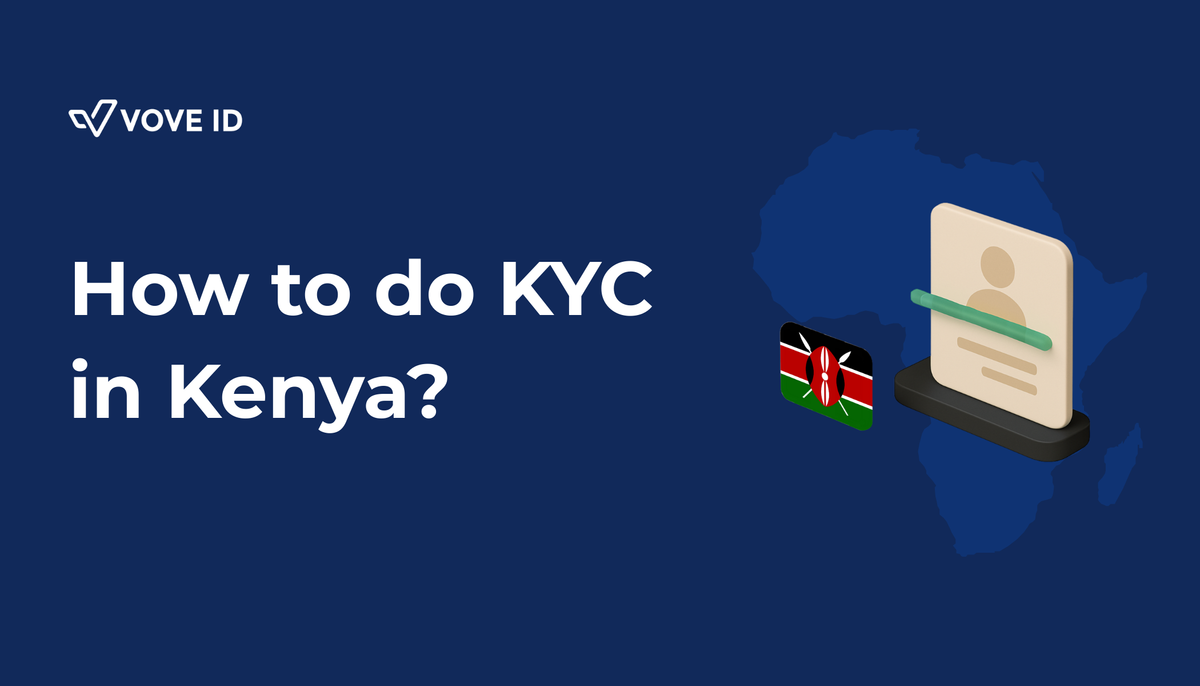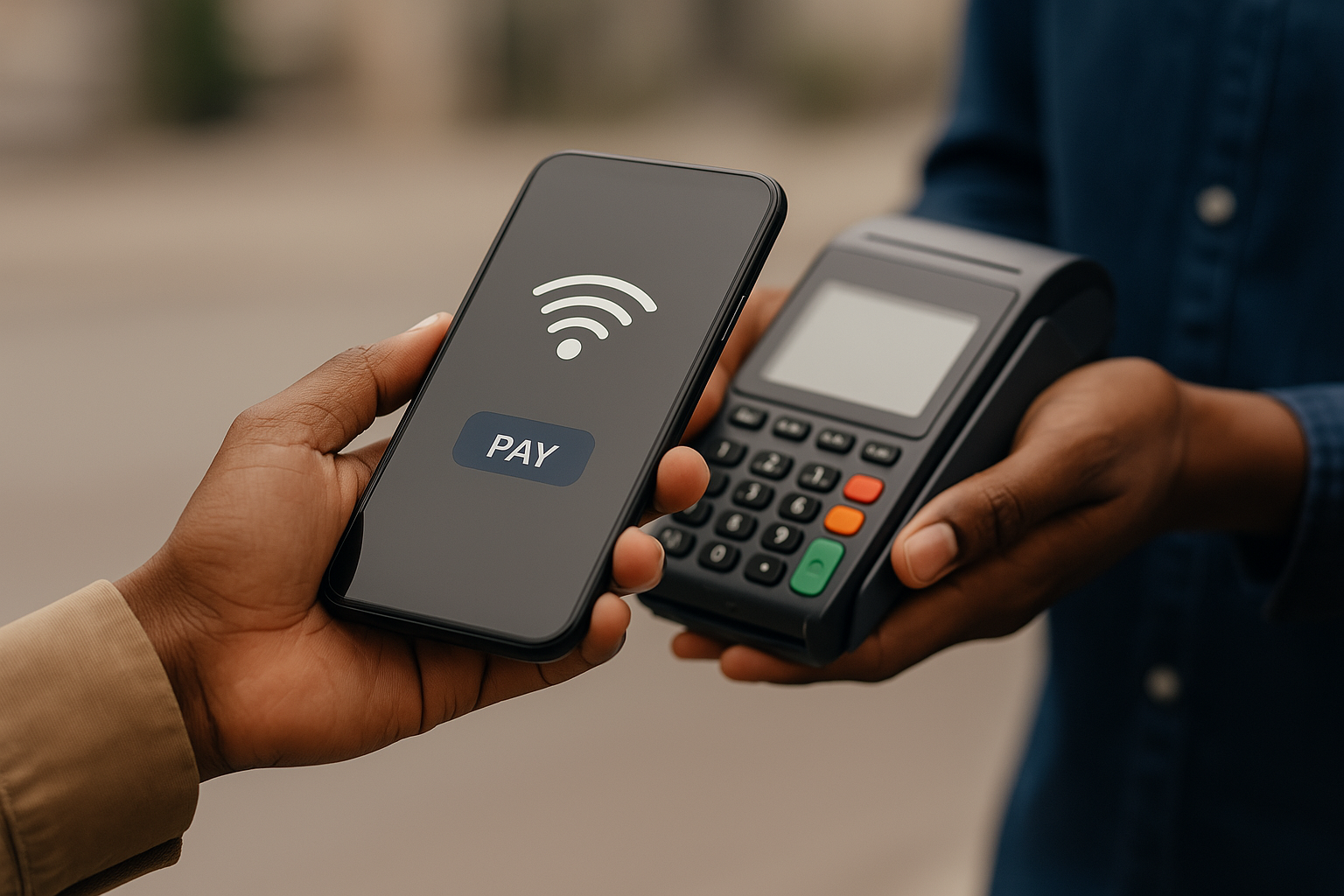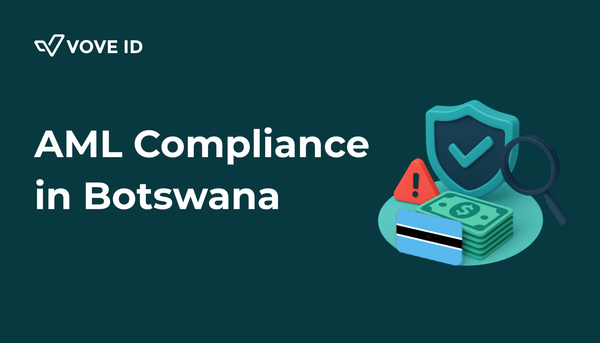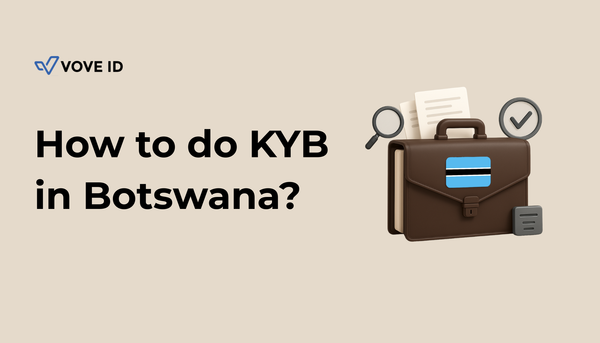Mastering KYC in Kenya: Your Compliance Compass
Navigate KYC Kenya with VOVE ID’s AI-powered eKYC. Ensure fraud-free onboarding, meet CBK & POCAMLA rules, and thrive in Kenya’s fintech boom. Book a demo!

Mastering KYC in Kenya: Your Compliance Compass
Why KYC Matters in Kenya
Imagine you’re a fintech founder in Nairobi, racing to onboard customers in a market where mobile money drives over 70% of transactions. How do you ensure each user is who they claim to be? Know Your Customer (KYC) is your answer — the cornerstone of trust in Kenya’s thriving digital economy. It’s not just about compliance; it’s about safeguarding businesses from fraud, money laundering, and terrorism financing, all while meeting Anti-Money Laundering (AML) laws enforced by the Central Bank of Kenya (CBK). VOVE ID steps in here, democratizing KYC with cutting-edge tools that make identity verification fast, secure, and affordable for startups and small to medium enterprises (SMEs) alike.

The Core of KYC: What You Need
KYC in Kenya starts by gathering and verifying critical documents amid rising document fraud:
- Identity Proof: National ID or passport: VOVE ID’s AI scans these, checking holograms, watermarks, and Machine-Readable Zone (MRZ) codes to spot fakes.
- Address Verification: Utility bills, lease agreements, or bank statements confirm where customers live.
- Tax Compliance: A Kenya Revenue Authority (KRA) PIN Certificate proves tax legitimacy, a CBK requirement since 2006.
- Cross-Check: Match passport details with National IDs or birth certificates to detect stolen identities or inconsistencies.
How to Get It Done
Executing KYC in Kenya requires a multi-layered approach, streamlined by VOVE ID’s tech:
- Collect Data: Gather essentials such as full name, address, ID number, and contact details from customer-submitted documents.
- Verify Authenticity: Use OCR to extract data and cross-check with Kenya’s Directorate of Immigration database. VOVE ID automates this, scanning for watermarks, microtext, and stitching patterns digitally.
- Assess and Screen: Run checks against FRC sanctions, PEP lists, and adverse media reports. High-risk profiles, like those tied to financial crimes, demand enhanced due diligence and detailed risk assessment, often involving deeper background checks.
- Monitor Continuously: Watch transaction patterns for anomalies such as sudden high-value transfers or frequent small payments per POCAMLA guidelines, adjusting scrutiny as risks evolve.
Tech Takes the Lead: eKYC
Kenya’s fintech prowess powers electronic KYC (eKYC), tackling fraud head-on:
- Speed and Detection: OCR and biometric authentication like facial recognition cut verification from days to seconds, flagging counterfeit passports with mismatched fonts, poor alignments, or missing UV-sensitive elements.
- Precision: Liveness checks ensure the person is real, not a photo or mask, while API integration with the Directorate of Immigration validates passport numbers and series in real-time.
- Fraud Defense: VOVE ID’s AI detects obscured details, expired passports repurposed by fraudsters (valid for 10 years in Kenya), and stolen IDs from breaches — biometric checks catch mismatches that text alone misses.
- Scalability: The “verify once, use everywhere” model builds reusable digital profiles, syncing with BRS and KRA systems, streamlining onboarding across services.
Kenya’s Regulatory Backbone
POCAMLA (detailed on the FRC’s public guidelines) enforced by the CBK and FRC (Kenya’s financial intelligence unit), lays the foundation. Since exiting the Financial Action Task Force (FATF) grey list in 2019, non-compliance fines have soared into millions of shillings. Kenya aligns with the Eastern and Southern Africa Anti-Money Laundering Group (ESAAMLG), screening against global lists like the United Nations Security Council (UNSC) and Office of Foreign Assets Control (OFAC), ensuring KYC meets international benchmarks.
Challenges to Watch
- Access Gaps: Rural Kenyans often lack formal IDs so mobile-first eKYC bridges this divide with selfie-based checks.
- Fraud Risks: Criminals exploit document weaknesses using expired, forged, or stolen IDs while VOVE ID’s biometric tools and AI design analysis help flag even the most subtle fakes.
- Cost: SMEs shy away from compliance costs, but VOVE ID’s affordable, scalable tools make KYC viable for all.
Winning with KYC
A robust KYC process is a game-changer. It builds customer trust with secure, fraud-free transactions, accelerates onboarding to match Kenya’s fast-paced mobile economy, and keeps regulators like the CBK and FRC satisfied. Screening against sanctions, PEP lists, and adverse media uncovers risks (think terrorism financing or drug trafficking ties) shielding your business from legal and reputational hits. For companies chasing Foreign Direct Investment (FDI), it’s a trust signal, proving reliability in a market where fraud’s a constant shadow. VOVE ID’s platform flips compliance from a hurdle into a growth engine, leveling the playing field for startups and SMEs with enterprise-grade verification.
Act Now
Ready to harness Kenya’s fintech potential with ironclad compliance? VOVE ID’s AI-powered KYC slashes onboarding delays, thwarts fraud with biometric authentication, and scales cost-effectively for startups and SMEs. Book your demo today at https://www.voveid.com/contact — fast, secure, and built to master KYC in Kenya’s dynamic landscape.




